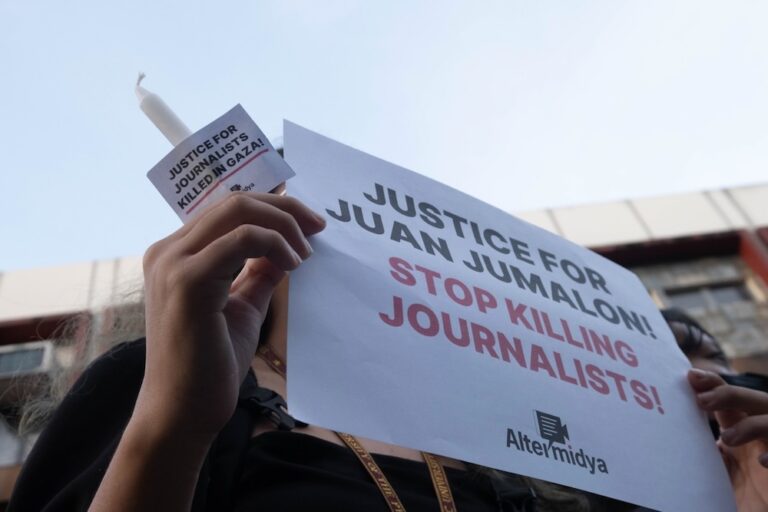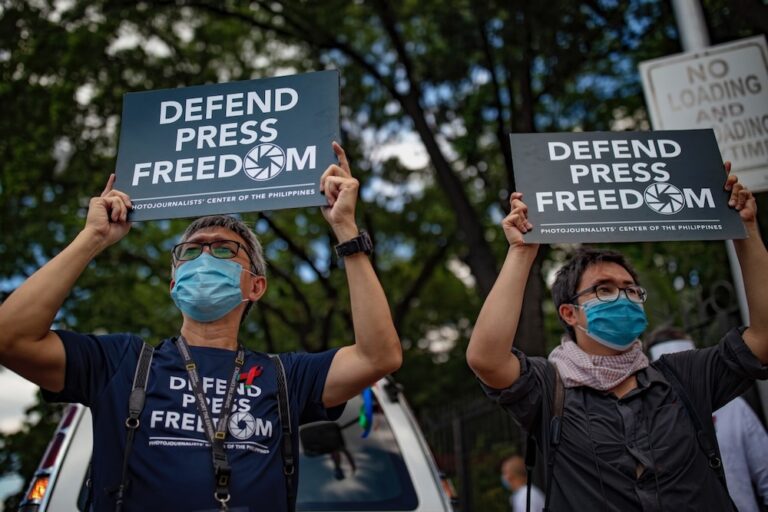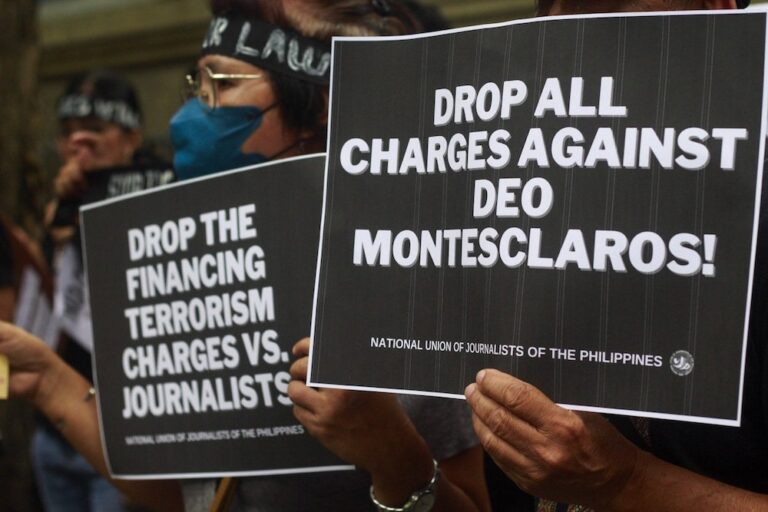(SEAPA/IFEX) – Leaders of the Philippine broadcasting industry have reportedly agreed to compromise on their coverage of groups branded as “terrorists” by the country’s government, eager not to be seen as “mouthpieces” of outlawed organisations and wary of having their licenses revoked. Leaders of the Broadcasters’ Association of the Philippines (Kapisanan ng mga Brodkaster ng […]
(SEAPA/IFEX) – Leaders of the Philippine broadcasting industry have reportedly agreed to compromise on their coverage of groups branded as “terrorists” by the country’s government, eager not to be seen as “mouthpieces” of outlawed organisations and wary of having their licenses revoked.
Leaders of the Broadcasters’ Association of the Philippines (Kapisanan ng mga Brodkaster ng Pilipinas, KBP) said they are responding to complaints and warnings aired by the country’s military that the press may be allowing itself to be “used”, either for propaganda to destabilise the government or as an unwitting conduit for sending coded messages to terrorists.
According to the “Philippine Daily Inquirer”, KBP president Ruperto Nicdao “reminded television and radio networks [on 7 March 2005] that their licences [could be] revoked for broadcasts that may jeopardise the ‘state’s security’.”
Philippine President Gloria Macapagal-Arroyo’s spokesman said the country’s broadcasting regulatory agency, the National Telecommunications Commission, also “forbids the live airing of interviews that contain messages bordering on seditious.”
The Philippines has one of the freest and most outspoken media industries in Asia. Its press, freed from 20 years of suppression under the Marcos dictatorship from the 1960s to the 1980s, is by and large fiercely protective of its hard-won rights and freedoms.
In recent years and months, however, Philippine officials and soldiers have been complaining that the press has been too accommodating to outlawed groups, such as the communist New People’s Army (NPA) and the militant Islamic group Abu Sayyaf. Both groups have been tagged by the United States as “foreign terrorist organisations.”
The leaders of both organisations have well-established access to the country’s leading stations and programmes. Rebel spokesmen are regularly interviewed on morning radio shows. A radio station recently allowed an Abu Sayyaf leader to read a statement claiming credit for a series of bombings that killed 12 people and injured 151 others in the Philippines last month.
On 7 March, Nicdao said on a national radio network programme, “We have been telling our members to avoid contacts with proven terrorist groups whose criminal activities are known,” the “Philippine Daily Inquirer” reported. He added that the KBP will review its radio code of conduct with the view to revising it “to include appropriate sanctions, as well as safeguards, regarding interviews with terrorist groups.”
While acknowledging the need for self-regulation and ethical debates, other media groups in the Philippines are troubled by the KBP’s stance. The National Union of Journalists of the Philippines says the mere suggestion that government can help define who should be granted radio and television interviews would infringe on press freedom.


